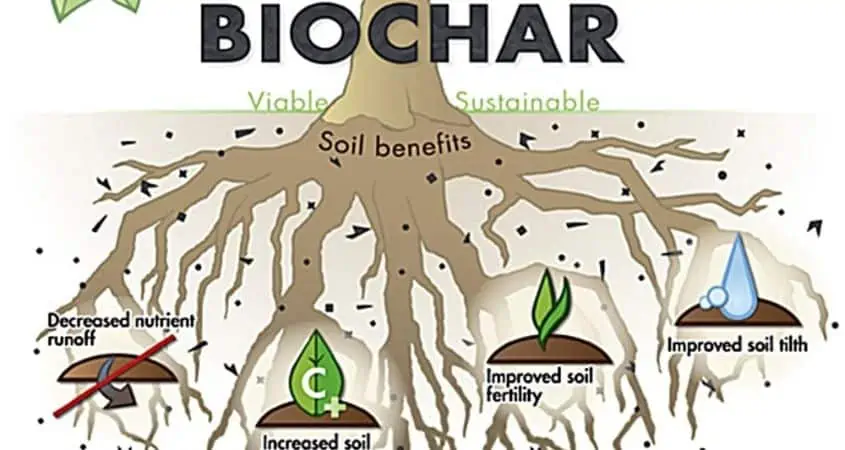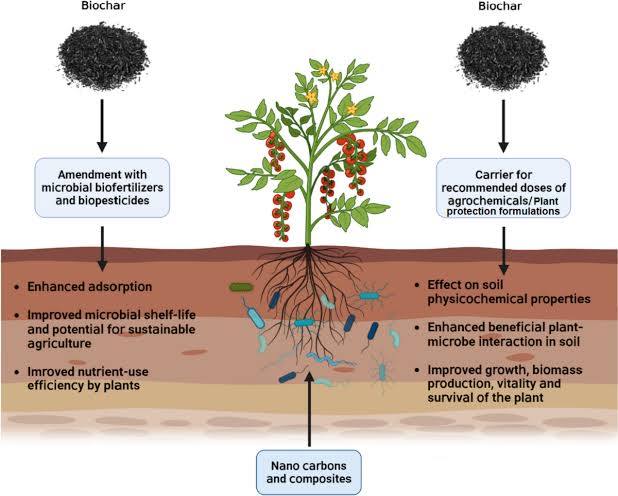Biochar is a stable, carbon-rich substance produced through the pyrolysis (thermal decomposition without oxygen) of organic biomass such as crop residues, wood chips, or manure. When applied to soil, biochar enhances its physical and chemical properties improving water retention, increasing nutrient availability, reducing soil acidity, and promoting microbial activity.
It also serves as a long-term carbon sink, making it a nature-based climate mitigation solution. Biochar is particularly effective in degraded or drought-prone soils and is commonly used in regenerative agriculture, agroforestry, and smallholder farming.
The technology is simple to adopt and scalable, ranging from low-tech kilns for small-scale use to advanced pyrolysis systems for industrial application. It has been promoted globally through farmer cooperatives, sustainability projects, and climate adaptation programs.


